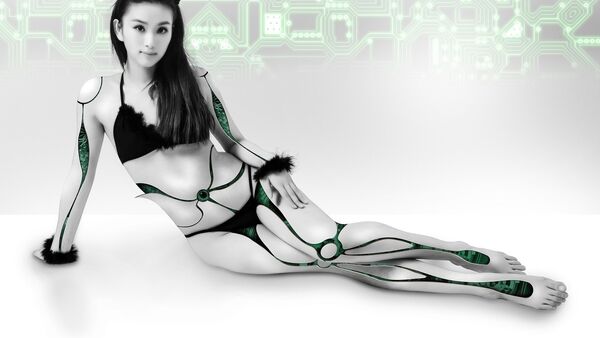A person walks up to a robot, touches the robotic arm, and the arm follows, drawing lines on a screen. What used to be dangerous for humans is now made safe and accessible: robots produced by the German company KUKA are taught to interact and collaborate with the operator instead of just performing their tasks behind an orange fence with warning signs.
The company aims at producing intelligent robot-based automation.
Here is KUKA's Product Manager Christian Felkel talking about human-machine collaboration:
The unusual aspect is that we can assign human tasks that are truly ideal for humans, and can likewise assign robot tasks that are ideal for robots. For example, robots are good with repetitive and heavy-duty tasks. But when it comes to cognitive tasks, we simply need humans. The objective is work-sharing with all participants taking on the tasks best suited to their abilities.
Even though currently robots mainly work on assembly lines, the list of things they are capable of doing is growing. With the development of advanced artificial intelligence technology, jobs that were previously purely human tasks are often being given to machines.
Areas like journalism and banking already has homo sapiens competing with AI. Computer programs are quickly learning to compile news wire reports, ATMs are replacing cashiers in banks worldwide.
Andy Mattes, the CEO of Diebold – a major automatic teller machines manufacturer, told CNBC that in the near future robots will be taking over whole bank branches:
The ATM of tomorrow is going to replace the teller. It can do about 90% of what the human being can do. And it’s going to be your “branch-in-a-box”. You’re gonna be putting money into the machine, you’re gonna be able to do car loans, you’re gonna be able to open accounts in the machine, and by the way, get your bank card there and then.
There are two opposing viewpoints on the ongoing robotic revolution. Those who think that the glass is half-full, say humans will have more time for creativity. The pessimists, however, warn that soon smart machines will make thousands of lawyers, librarians, policy analysts and professors jobless.
So whether collaboration between the modern human civilization and androids will be successful – remains to be seen.
We'd love to get your feedback at radio@sputniknews.com


